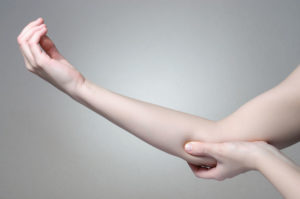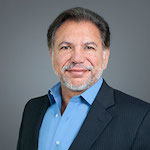Adult Stem Cell Therapy & Platelet Rich Plasma
The Use of PRP in Treating UCL Injuries
 Platelet-rich plasma (PRP) continues to demonstrate its ability to treat sports injuries commonly believed to require invasive surgery. This does not come a surprise to Dr. William Bennett, who has been utilizing PRP as an alternative or supplement to surgery for many years. Dr. Bennett has successfully treated tendon, ligament, cartilage and muscle injuries – and even osteoarthritis! – with PRP. Now, research indicates that ulnar collateral ligament (UCL) injuries can also be treated with the power of PRP.
Platelet-rich plasma (PRP) continues to demonstrate its ability to treat sports injuries commonly believed to require invasive surgery. This does not come a surprise to Dr. William Bennett, who has been utilizing PRP as an alternative or supplement to surgery for many years. Dr. Bennett has successfully treated tendon, ligament, cartilage and muscle injuries – and even osteoarthritis! – with PRP. Now, research indicates that ulnar collateral ligament (UCL) injuries can also be treated with the power of PRP.
The Ulnar Collateral Ligament Sprain
A UCL injury occurs in the elbow when one of the ligaments on the inner side of the elbow tears. The ulnar collateral ligament is responsible for supporting the relationship between the upper arm bone and the ulna forearm bone. The UCL rarely becomes injured through daily activities. Repeated throwing usually causes either a sudden tear or gradual stretching that leads to a tear. Depending on the degree of the sprain, a UCL injury can range from painful with elbow function to incredibly painful with severely restricted elbow function.
Patients can identify a UCL injury from symptoms like pain and tenderness on the inner side of the elbow, a pop or tearing sensation when throwing, the inability to throw at full speed, elbow stiffness, weak hand grip, and numbness around the fingers and hand.
Conventional UCL Injury Treatment
Standard treatment considerations for a UCL injury include using medicine and ice to relieve pain and reduce swelling. A splint, brace, or cast is often used on severe injuries, and rehabilitation is always recommended to improve strength endurance and proper throwing mechanics. Without surgery, athletes usually take three to six months to return to their sport, while recovery from surgical reconstruction requires up to 18 months of recovery.
Transforming UCL Treatment with PRP
PRP makes it possible to treat UCL injuries differently than ever before. PRP can be used in conjunction with or in place of surgery to stimulate accelerated healing in the ulnar collateral ligament. PRP carries a number of important growth factors that fight inflammation and support tissue healing, which makes it possible for PRP to function differently than other sports injury treatments. It can be injected directly at the site of injury to stimulate accelerated tissue healing.
At Bennett Orthopedics and Sportsmedicine in Sarasota, Florida, Dr. Bennett is committed to the innovative use of PRP to help patients overcome their injuries and return to the sports they love. Call (941) 229-1648 to schedule an appointment with Dr. Bennett and learn more about how PRP can be harnessed to treat your own sports injury.






